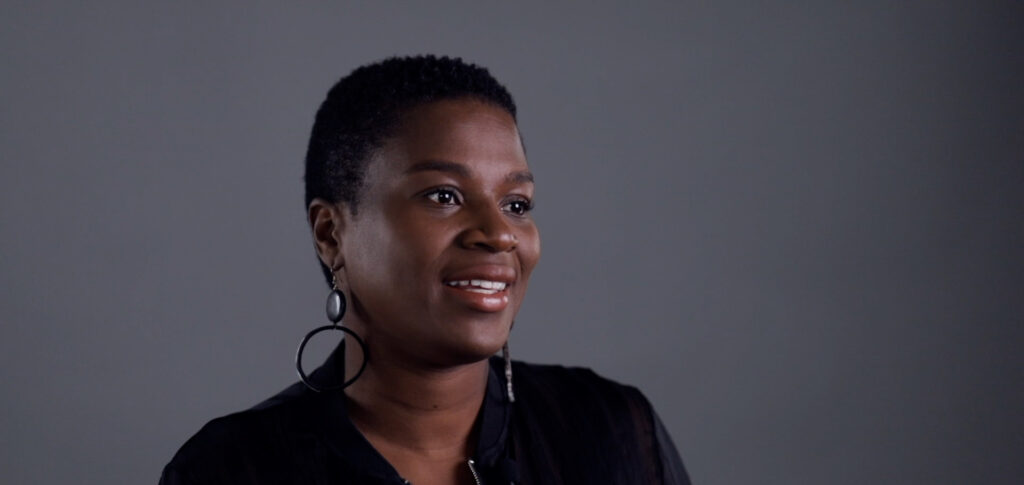MONTREAL, July 29, 2021—The Canadian Race Relations Foundation (CRRF) and YWCA Canada have their #BlockHate campaign, which aims to raise awareness of the pitfalls of ignoring hate speech and racism perpetrated online. The launch of the latest video, coincides with a reported 250 percent spike in hate crimes across North America[1]. Many experts believe there is a link between the racially incendiary rhetoric on popular social media platforms and the sharp spike in racially-motivated crime.
This timely video was sponsored by Toyota Canada and focuses on the story of Carla Beauvais, a Black Montreal-based columnist and social entrepreneur. She became the target of racial abuse last June after being featured in a local publication for a mobile app for Black entrepreneurs she created following the murder of George Floyd. The experience profoundly traumatized her and caused her to re-examine her sense of belonging in society.
“I don’t think anyone is mentally or emotionally ready for all this violence. You may think you are safe or strong enough to deal with this outpouring of hate, but the reality is quite different,” said Carla Beauvais. “I have never felt so helpless and powerless. I have never felt so scared in my life. Even today, I wonder why our humanity has come to this point! I am comforted by the knowledge that many voices are being raised to stop online violence and hatred and, above all, to take action to protect victims and control hateful messages on the web.”
Unfortunately, Carla’s story is not unique. In mid-June, Montreal Municipal Police released a report that hate crimes increased by nearly 53 percent last year compared to 2019[2]. Furthermore, in 2019, Statistics Canada concluded that online hate crimes accounted for more than a tenth[3] of overall hate crimes across the country, and this appears to be rising.
“The staggering rise in online hate speech is cause for alarm,” says Maya Roy, CEO at YWCA Canada. “Online hate takes on many vicious forms and we must acknowledge how women and gender diverse people in Canada with intersecting identities, such as members of Black, Indigenous and racialized communities are targeted in these attacks.”
According to a poll conducted by the CRRF and Abacus Data, this January, 58 percent of racialized Canadians said they have either faced or experienced racism online. Sixty-one percent of Canadian women believe that racism and hate speech have increased in the last few years and 82 percent of women are concerned about the spread of racism online.
“Canadians like Carla deserve to live and exist in spaces that are free from the trauma of racism, whether online or in their neighbourhoods, places of worship, schools, or on the job,” said Mohammed Hashim, Executive Director of CRRF. “To do better by all people targeted by racial discrimination, all sectors, governmental, social media companies, and community members alike must redouble our efforts collectively to create solutions that befit the society we aspire to be.”
READ AND DOWNLOAD THE CRRF/ABACUS DATA ONLINE HATE SPEECH SURVEY RESULTS
—END—
About CRRF:
The Canadian Race Relations Foundation was created in 1996 to reaffirm justice and equality for all in Canada. The mandate of the Foundation is to facilitate throughout Canada the development, sharing, and application of knowledge and expertise to contribute to the elimination of racism and all forms of racial discrimination in Canadian society.
About YWCA Canada:
YWCA Canada is a leading voice for women, girls, Two-Spirit and gender diverse people. For 150 years, we’ve been at the forefront of a movement: to fight gender-based violence, build affordable housing and advocate for workplace equity. We work to advance gender equity by responding to urgent needs in communities, through national advocacy and grassroots initiatives. YWCA Canada is the oldest and largest gender equity organization in Canada operating in 300 communities in nine provinces and two territories. Local YWCAs invest over $258 million annually to support over 330,000 individuals across the nation. Today, we engage young leaders, diverse communities, and corporate partners to achieve our vision of a safe and equitable Canada for all.
For media inquiries, please contact:
| Kimberly Bennett, Director of Communications Canadian Race Relations Foundation Ph: 437 533 1104 Email: kbennett@crrf-fcrr.ca | Anjum Sultana, Director of Public Policy & Strategic Communication YWCA Canada Ph: 647 205 3079 Email: asultana@ywcacanada.ca |
[1] CBC/Radio Canada. (2021, July 21). Canadian right-wing extremism increased online during the pandemic, report says | CBC News. CBC News. https://www.cbc.ca/news/politics/right-wing-extremism-report-1.6108958.
[2] Racially motivated hate crimes up by 53 per cent in Montreal last year: report. Montreal. (2021, June 16). https://montreal.ctvnews.ca/racially-motivated-hate-crimes-up-by-53-per-cent-in-montreal-last-year-report-1.5472848.
[3] Armstrong, A. (2019, April 30). This Juristat article examines the nature and extent of police-reported hate crime in Canada. Key topics include motivations for hate crime (e.g., race/ethnicity, religion, and sexual orientation), types of offences, geographical comparisons, and victim/accused characteristics. The article uses data from the Incident-based Uniform Crime Reporting Survey which gathers data from police records. Statistics Canada: Canada’s national statistical agency / Statistique Canada : Organisme statistique national du Canada. https://www150.statcan.gc.ca/n1/pub/85-002-x/2019001/article/00008-eng.htm.
